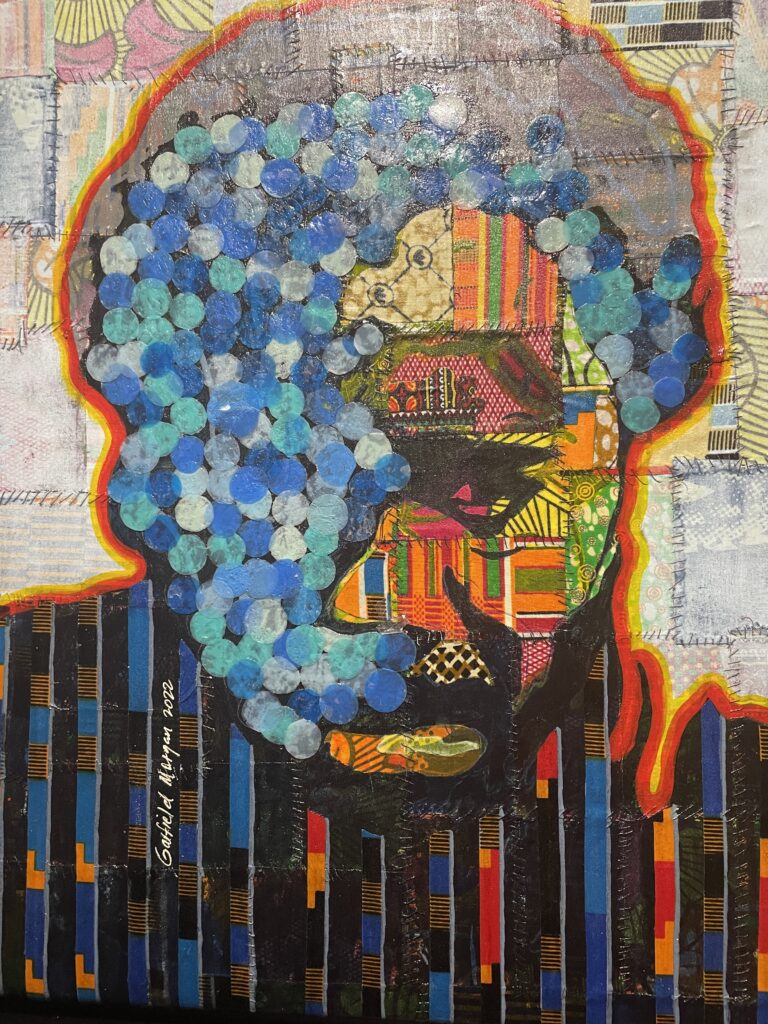Are women capable of leadership?

Why does civilization see womankind as inferior, when women play multiple and predominant and, largely, uncredited roles in the socio-economic development of societies across the globe? Why do our bellies roil at the idea of having women in key leadership positions? Even within the family, women play a subordinate role. In many societies, certainly in Ghana, men, indubitably, head the family unit. Through childhood to date, I have experienced different types of families, each with its own realities, and have asked myself why women in such families had to wait on the men to be able to make even very simple decisions?
History has it that until about 8,000 years ago on the African continent, when a major historical patriarchal shift took place, both males and females played complementary roles in leading their societies. During that era, some truly competent women leaders built impressive legacies. Notable examples of women leadership was Amina (d.1610). She was a great warrior and Queen of Zaria, Nigeria in the fifteenth century. She ruled for 34 years and expanded the Zazzau Kingdom, (present-day Zaria in Kaduna state) into one of the greatest empires of the time. Other outstanding women were Cleopatra, Makeda, Hatshepsut, Queen Nefertiti, Yaa Asantewaa, Candace, the Empress of Ethiopia, Queen Nandi of the Zulu Kingdom and Queen Ranavalona the First of Madagascar. Yet, female leadership acumen is grossly undervalued in today’s world.
The world has experienced male-dominated leadership for centuries and we have all been witness to their inadequacies and of the global outcry for better leadership to provide better solutions to the complex problems facing society today. Problems which require empathy and sensitivity to the issues affecting the vast numbers of vulnerable and marginalized who make up the majority of the world’s population.
There is no doubt that women would make far more empathetic leaders, a trait that is critical in this uncertain COVID-19 era; a woman’s maternal instincts should not be deemed a weakness but as strength. According to Forbes magazine, data from the quantitative study on gender and leadership suggest that “women are better equipped for handling a health crisis, including a pandemic.”
This finding is borne out by the effective management of the COVID-19 Pandemic in most of those countries where women hold key positions such as New Zealand, Germany, Taiwan, Iceland, Finland, Norway, and Denmark. The female-led countries are recognized to have managed the crisis better as compared to countries like the USA, Brazil, Spain, Italy, France and the United Kingdom which still have male-dominated leadership systems.
Patriarchal leadership has shown blatant degrees of ineffectiveness. So, if we want to have compassionate leaders, we have to include women at the helm of governments to ensure balance and enjoy the greatness embedded in diversity and inclusion, leading to equality!
Whenever I say this, people are quick to point out the inadequacies of the late Margaret Thatcher, former prime minister of the United Kingdom (1979-1990) and Europe’s first female prime minister. They ask where was her empathy as a leader. Let me make it clear that, in her days, a female leader of a patriarchal political party and government, had to act almost as a man would. She had to exude some level of masculinity while suppressing her femininity to be taken seriously in a male-dominated leadership arena in a patriarchal world.
In Ghana, there are, as yet, not as many female leaders in governance as desired, but female leadership capacity abounds and remains untapped. I would dare say the efficiency gains female leadership holds in stock for society remains wasted. We need to make a choice to tap into the reservoir of female leadership skills to transform Ghana. This choice places responsibility at the door of the male-dominated and male-led parties to give their female members the opportunity to amplify their voices and make them equal partners in leadership
But, of course, this must begin in the home, the church, and the community. The role of the Government of Ghana and the governments of other African countries is to pass the affirmative action bill, to enable more women to take up key positions of power. Women also have a role to play in organizing themselves and having the confidence to say “we can rule the world better“ and to go out, in their numbers, to pursue power. Feminist activists need to groom girls to confidently ascend the ladder of leadership as the GIRLS EXCELLENCE MOVEMENT (GEM) does with its monthly Inspiration-On-Wheels projects. All of these actions, combined, will build gender solidarity in all jurisdictions and will demonstrate the fact that women can be powerful and effective leaders, just as men are.
Bucky Exe-Evans is recognized as one of the prominent voices advocating for women’s rights and gender equality in Ghana. She is an entrepreneur, a CCI fellow, a show host, a GEM Mentor and the Director of Operations for GEM. Bucky is the CEO for The Good Food Company, a start-up Agro-company and a Partner at GAP Auto Services Ltd. Bucky Evans is deeply passionate about volunteering and leading for change.





